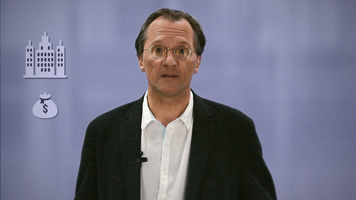Money and Time II: Growth
The economy is driven to make more money out of money
It’s not people’s greed that drives the economy to grow. It’s not because people always want to have more goods that “the economy” sees itself compelled to produce ever more. And even if people were satisfied with less, the economy would still not cease insisting on growth. Far more, it is driven to make more money out of money. And that is what forces the economy, among other things, to produce more goods and persuade people to want ever more goods, namely, to buy.

The logic of modern money
The capitalistic economy that emerges in the course of the European 16th century is forced into this kind of growth: according to the logic of modern money, which has become the main intermediary of all provisioning arrangements. When an entire society is forced to acquire life’s essentials with money, its members must consistently make money. And that means that businesses must yield more money than they spend. This purely mathematical and completely stubborn, blind and irrefutable goal – enforced across a society – creates the pressure that money necessarily must become more money.
If this fails to transpire in a single transaction, it results in a loss. When a company continues to make losses over time, it goes bankrupt. When an entire society similarly fails, its monetary system collapses – and with it all provisioning that is dependent on that system. Therefore in this system there must be this excess: even a percent too little growth brings on a crisis. Money must function as capital – in order to remain money: it must become more money.

The hope in money and growth
This growth is, as in the meantime no less than four capitalistic centuries attest, possible for a long time. And almost from the first instant, people have seen in this promise that growth would always be possible, that a mere necessity could be reinterpreted to be the prevailing reality. Likewise, from the outset, phases of growth have been broken by crises, and the latest ones have deeply shaken the belief in the ultimate durability of growth – and with it, rightly, faith in money, too. And yet no crisis is able to counter the compulsion that we must go on with money and growth if our supply arrangement based on money is not to collapse. As much as this compulsion is damaging our providing – for example, in the form of contaminated food or the increasingly devastated natural world – money forces people to pin all their hopes on it: regarding it alone as on big promise.